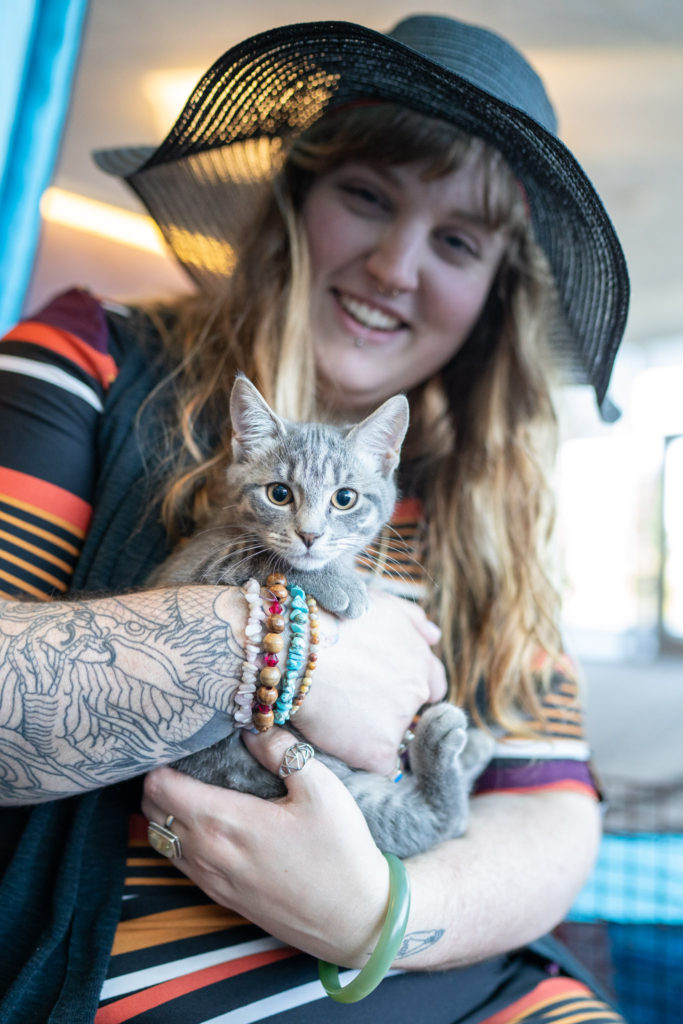Moving In
Time and patience are the keys to successfully introducing a new cat to your household. The new cat should have a room of her own for the first several days after coming to a new home. This allows your new cat to adjust to the new sounds, smells and people in your home without being overwhelmed by a large area. You’ll want to keep a litter box, food, water, and a comfy bed in this room too.
Once the cat is approaching you confidently each time you enter the room, you can begin giving her access to the rest of the home. Start with opening the door to her room and let her out for a short time only before putting her back. Gradually increase the time she is allowed out of the room until she seems very comfortable in her new home.
Also, cats find consistent routines and predictable environments very comforting, so try to keep your cat’s activities on a schedule. Playtimes, mealtimes, and bedtimes should occur at approximately the same time every day as this will not only help your cat adjust to her new home, but will keep her happy in years to come.
If you do need to move her litter box, food or water bowls, move them a little bit each day until they are in the new permanent location. Small moves each day will help your cat adjust quickly and not feel like her routine has been broken.
Feeding
Kittens grow rapidly for the first year of their lives and should be fed a high-quality kitten or “feline growth” food until their first birthday. We recommend feeding kittens and adult cats only premium foods available at pet specialty stores. You may wish to ask us or your veterinarian for recommendations.
Fresh water and dry food should be available at all times for kittens. Canned food should be given to kittens twice a day as it provides an excellent source of protein. Adult cats should usually be fed moist food, either canned or pouches. Many cats will also enjoy dry food, but it is usually best to closely regulate dry food and not allow “free feeding” from a bowl full of food. Consult your veterinarian for the best diet for your kitty.
Abrupt food changes can cause an upset stomach and diarrhea. Change your kitty’s diet incrementally over a period of at least two weeks, adding increasingly more of the new food to the mix until you’ve made the change. If your kitty has loose stools for more than seven days, contact your veterinarian.
Health
Most importantly, be certain your kitty is eating, drinking and eliminating normally before allowing her access to the rest of the home. Watch for signs of illness such as lethargy, dehydration and lack of appetite. With early detection, a simple treatment can often get kitty quickly back on the road to health.
Establish a relationship with a veterinarian near your home. Do not neglect yearly exams, as this often allows your doctor to detect problems that might otherwise go unnoticed. As with human diseases, early detection and treatment is often vital to the continued health of the animal.


